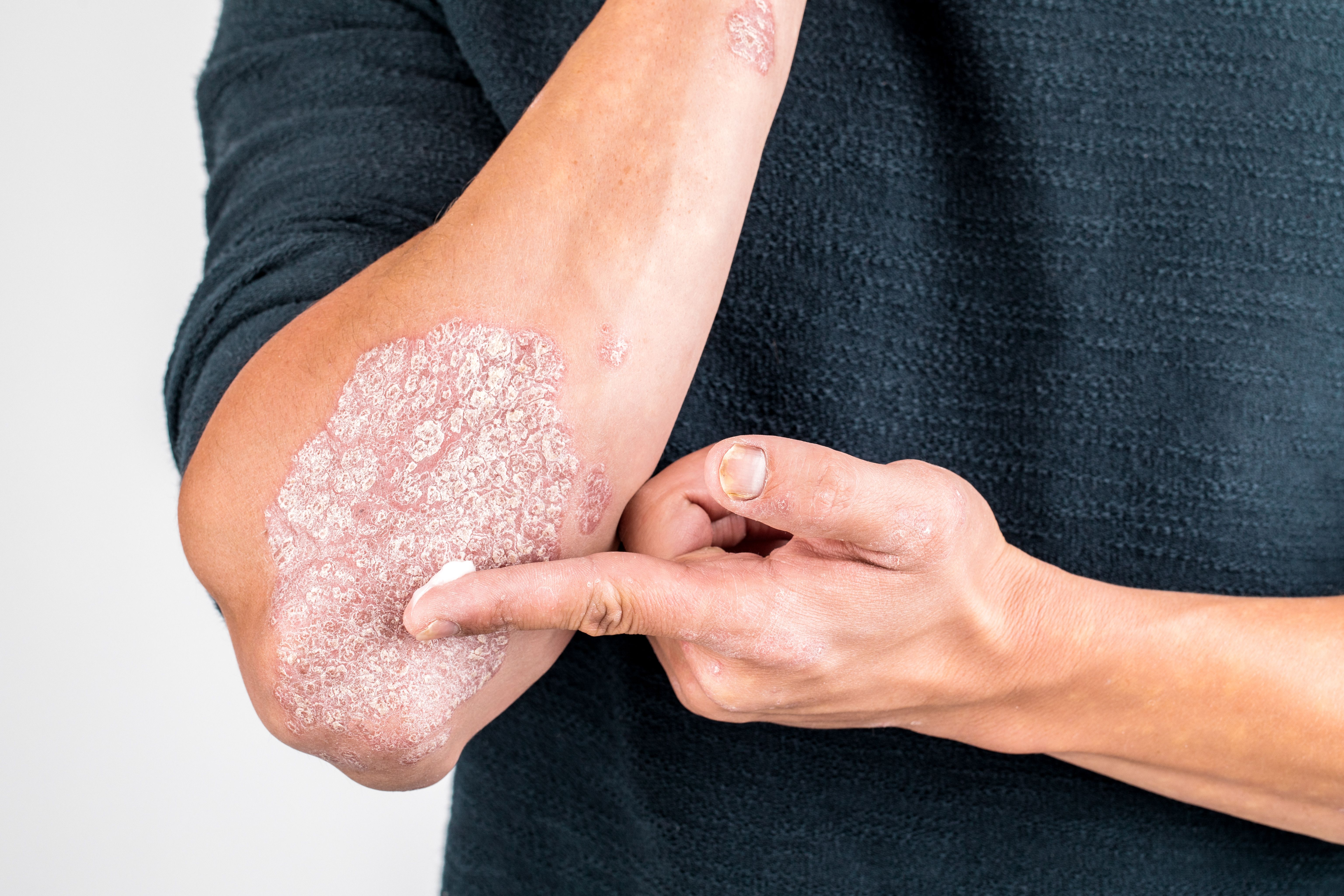- General Dermatology
- Eczema
- Chronic Hand Eczema
- Alopecia
- Aesthetics
- Vitiligo
- COVID-19
- Actinic Keratosis
- Precision Medicine and Biologics
- Rare Disease
- Wound Care
- Rosacea
- Psoriasis
- Psoriatic Arthritis
- Atopic Dermatitis
- Melasma
- NP and PA
- Skin Cancer
- Hidradenitis Suppurativa
- Drug Watch
- Pigmentary Disorders
- Acne
- Pediatric Dermatology
- Practice Management
- Prurigo Nodularis
Article
Psoriasis from the patient's perspective
Author(s):
A patient with psoriasis asks dermatologists to put themselves in their patients' shoes and look at the condition from that perspective.
Brian Lafoy, 44, of Plano, Texas, was diagnosed with psoriasis in his early 20s. He says it wasn’t until about five years ago, when he went on etanercept (Enbrel, Amgen) and got the condition under control, that he realized how the disease was a burden on his everyday life.
“I, like many others, pretty much tried to hide my condition … so I didn’t have to explain myself,” he says.
Colleagues, friends and friends would see the lesions or flakes from his head and say, “Ew, what’s your problem?” Or, “Ew, what do you have?”
“It was always prefaced by ‘Ew…’ As if it was some gross thing,” Mr. Lafoy says. “It brings you down.”
RELATED: 59% of survey respondents reported psoriasis was a large problem in their everyday lives. - National Psoriasis Foundation 2014 www.psoriasis.org
Mr. Lafoy, a civil engineer, says he went for years without wearing dark-colored shirts that might showcase flakes from his head.
“My head was completely covered with psoriasis. I would go all day and my scalp would itch so much and hurt so much. I would fight so hard not to scratch because any little scratch would send snowflakes of flakes down my shirt,” he says. “As soon as I got home I would lean over the bathroom sink and just scratch my scalp as long as I could until I could get some kind of level of comfort. I did that for years.
“I tried every topical medication. I tried peanut oil. Everything my dermatologist would give me and got no relief. It wasn’t until I got on the biologics that I pretty much cleared up almost instantly, within literally a few weeks. Then, I realized it was like a 9,000-pound weight on my shoulders,” he says.
Next: The physical impact of psoriasis
Physical impact
Still, it wasn’t the psychosocial aspects of the disease that led Mr. Lafoy to want a stronger medication - it was the physical impact of the disease. Mr. Lafoy, who is active in sports, lost most of the use of his right hand and right foot due to psoriatic arthritis.
“That was actually a bad condition because I was misdiagnosed,” he says. “I didn’t know the signs of psoriatic arthritis, even though I’ve been around psoriasis my entire life. My father had it.”
Mr. Lafoy says he feared oral medications because a chemotherapy-like drug almost killed his father. For Mr. Lafoy, the psychosocial impact goes deeper than his own experiences. As a youngster, he says he would watch his dad come home from work and take his socks off.
“His feet would be so bad, his socks would be full of blood,” Mr. Lafoy says.
The medication his father took (before biologics were available to treat psoriasis) made Mr. Lafoy’s dad lose 50 pounds, he says.
“We (had) neighbors that would actually come to me and ask me if my father had AIDS,” Mr. Lafoy says.
While he says he has not completely cleared since taking the biologic, Mr. Lafoy feels more confident and less worried about his appearance. Mr. Lafoy says his dermatologist had done a good job in prescribing medications, but he doesn’t recall ever being asked by his doctor whether he was bothered by his psoriasis.
“There were never any discussions about how are you feeling? Are you having problems at work because of the flakes?” Mr. Lafoy says. “I don’t think I was waiting for somebody to bring it up. It wasn’t until … the last few years that I realized, if we don’t start talking about this, we’re not going to be able to help other people in understanding that this isn’t just a skin disorder or just arthritis. This is a lot deeper and more involved.”
His message to dermatologists: Put yourselves in your patient’s shoes and look at it from that perspective.
Read more:
Psychosocial impact of psoriasis: The statistics
Psoriasis stres sresponse in vitro






